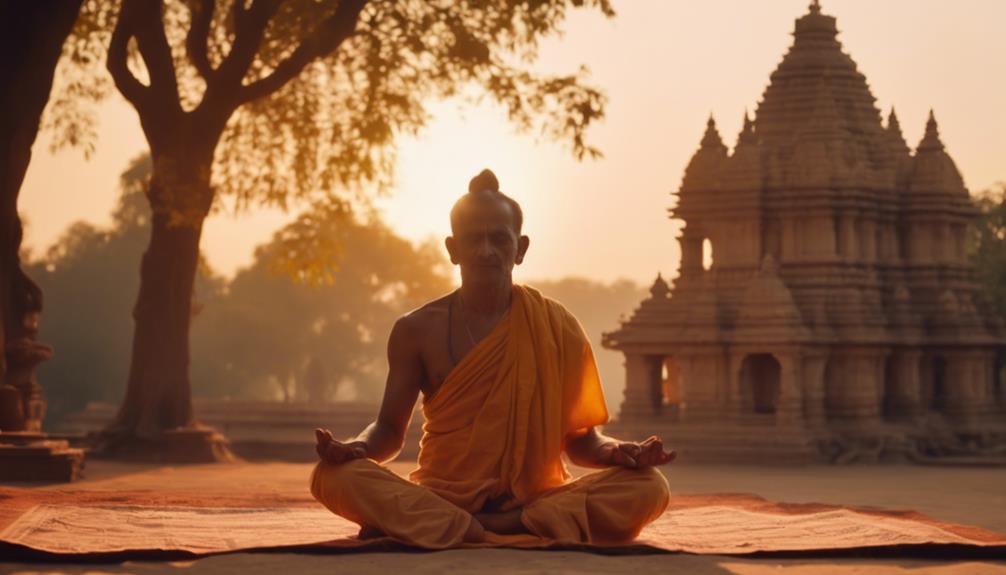
Yoga has become a beloved practice across the globe, but questions about its nature often arise. Is yoga a religious practice, or is it simply a form of fitness? This query invites us to explore the multifaceted world of yoga, where spirituality and physicality intertwine in a beautiful dance. Let’s dive into the rich tapestry of yoga, examining its roots and its place in modern life, and uncover the essence of its appeal to practitioners of all backgrounds.
Balancing Beliefs: Is Yoga a Spiritual Journey or Fitness?
At its core, yoga is a profound practice that encompasses physical, mental, and spiritual dimensions. Originating in ancient India, yoga was initially designed as a means to achieve spiritual awakening and harmony. Today, many people come to yoga seeking not just physical strength and flexibility but also mental clarity and inner peace. While some practitioners embrace the spiritual aspects of yoga and incorporate meditation and mindfulness into their routines, others may simply enjoy the physical benefits it brings. This duality makes yoga an accessible practice, welcoming individuals regardless of their beliefs.what can yoga help withdoes yoga help with sciatica
That said, the spiritual elements of yoga can’t be ignored. Traditional yoga teachings often delve into philosophies that explore concepts like karma, dharma, and the unity of body and spirit. These teachings resonate deeply with practitioners who are looking to connect with something greater than themselves. For these individuals, yoga is more than just a workout; it is a spiritual journey that facilitates self-discovery and personal growth. However, this does not preclude those who approach yoga strictly as a physical discipline from also experiencing its profound benefits—such as stress reduction, improved health, and increased mindfulness.
Ultimately, the classification of yoga as a religious practice or a fitness routine may depend on the individual. Each person’s journey through yoga is personal and unique, shaped by their own beliefs, experiences, and intentions. This adaptability is one of yoga’s greatest strengths, allowing it to thrive in diverse cultural contexts while remaining rooted in its rich heritage. Whether you view yoga as a spiritual journey, a fitness routine, or a blend of both, there is no right or wrong way to embrace this beautiful practice.
Stretching Beyond Religion: Yoga’s Universal Appeal Unveiled!
One of the most captivating aspects of yoga is its universality. It has transcended its religious roots to become a global phenomenon, appealing to people from all walks of life. In bustling cities, serene countryside, and everywhere in between, you’ll find yoga studios filled with practitioners eager to connect with their bodies and minds. This universal appeal lies in yoga’s ability to adapt and cater to individual needs. Whether you practice Vinyasa, Hatha, or restorative yoga, there is a style that resonates with everyone.
Moreover, yoga serves as a bridge that connects individuals across cultural and spiritual boundaries. It fosters a sense of community and inclusivity, inviting people to come together and share their unique experiences and stories. Many practitioners find that, through yoga, they forge deep connections with others, creating friendships that extend beyond the mat. This sense of belonging is especially vital in today’s fast-paced world, where social isolation is increasingly common. Yoga communities embrace all beliefs and backgrounds, promoting a culture of acceptance and compassion.
Additionally, the benefits of yoga extend far beyond the physical and spiritual realms. Health professionals have recognized its positive impact on mental health, recommending yoga as a complementary practice for stress relief, anxiety reduction, and emotional well-being. As more people discover these benefits, yoga continues to grow in popularity, evolving into a lifestyle choice that encourages mindfulness and self-care. Whether you’re seeking to deepen your spiritual practice or simply looking for a fun way to stay fit, yoga opens its arms to everyone, proving that its essence lies not solely in religion but in the joy of connecting with oneself and others.
As we explore the question of whether yoga is a religious practice or simply a method of fitness, it becomes clear that its essence is found in its flexibility—both physically and philosophically. The practice accommodates diverse beliefs, enabling each individual to cultivate their unique relationship with yoga. Whether you find solace in the spiritual teachings, enjoy the physical benefits, or simply appreciate the sense of community it fosters, yoga offers something for everyone. So roll out your mat, breathe deeply, and embrace the journey that is yoga—an invitation to explore the depths of your being, regardless of faith or fitness level.




